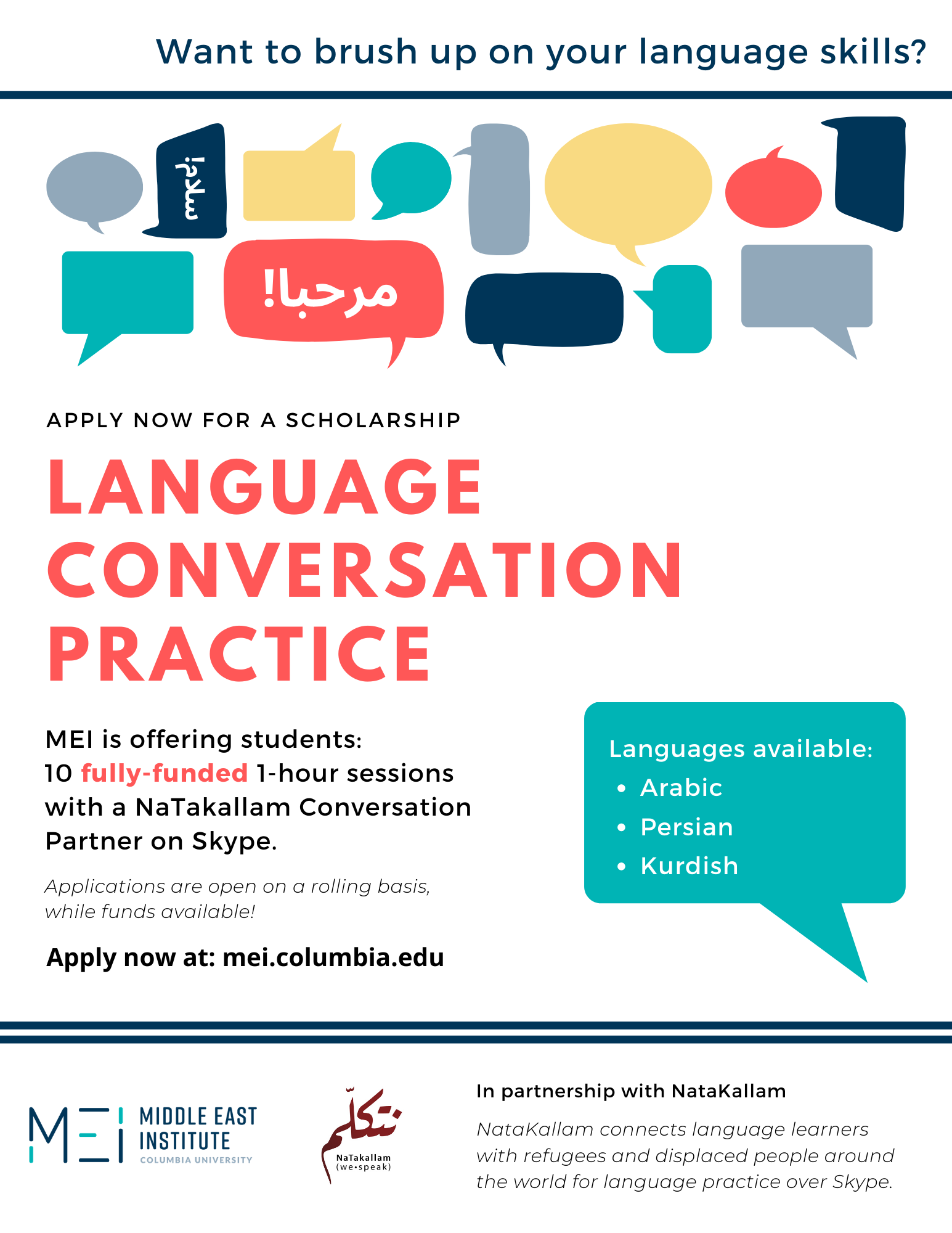Opportunity: Fully-funded Conversation Practice!
Apply by December 16h to take advantage of Language Conversation Practice over January Break
MEI has partnered with NaTakallam to connect language learners with refugees and displaced people who provide conversation practice in their native Arabic, Persian, and Kurdish! MEI is offering scholarships that cover 10 fully-funded sessions with a NaTakallam Conversation Partner. Whether you want to practice what you’re learning in an existing class, prepare for future research or job opportunities, speak with family and friends, or just have fun, NaTakallam can help you reach your goals.
Languages available:
Arabic (MSA, Levantine, Iraqi, Egyptian)
Persian (Farsi and Dari)
Kurdish
What the scholarship includes: 10 fully-funded 1-hour personalized sessions with a NaTakallam Conversation Partner in the language/dialect of your choice.
About NaTaKallam: Since 2015, NaTakallam has grown into a global social enterprise that has provided over 6000 students with unique online language practice and cultural exchange allowing refugees from the Middle East, Latin America, and Africa to self-generate income.

















